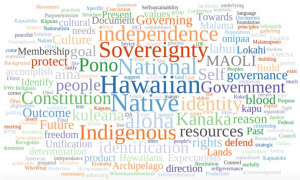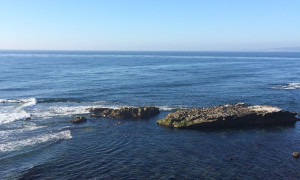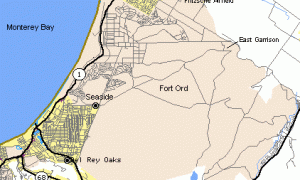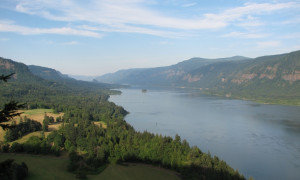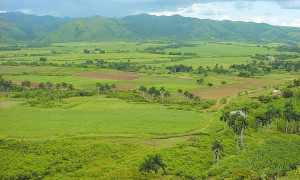Land use and transportation projects inevitably trigger broad interest and controversy. The types of decisions to be made – from impacts on neighborhoods and communities, to the siting of highways and new residential developments, to investments in public transit and important urban infrastructure – impact a broad range of stakeholders and spark community-wide discussions related to a city or region’s underlying needs and objectives.
Should an urban area invest in new highways or is it better off sinking available resources into more buses and trains? Are there ways to build affordable housing without sacrificing open lands? Is it possible to clean up old industrial sites in a manner that address environmental justice concerns from traditionally marginalized neighborhoods?
Structured deliberations can play a significant role in transforming these typically contentious topics into productive dialogues. In its more than 20 years of experience serving as neutral facilitators and mediators, CONCUR, Inc. has helped forge numerous agreements around complex land use and transportation decisions, using its stepwise model to help participants identify their mutual interests, frame options for resolving longstanding disagreements, jointly explore likely project impacts and build packages that can be broadly supported by diverse parties. CONCUR’s project experience is broad, ranging from local land use cases, new highway construction and county land use ordinances, to watershed protection plans, local coastal planning and agricultural land retirement deliberations. Our work necessitates familiarity with a range of local, state and federal statutes, including California municipal planning law CEQA/NEPA, ESA, various coastal guidelines and numerous other land use regulations.
Alaskan Way Viaduct - Seattle
CONCUR worked as part of a multi-disciplinary team assisting the State of Washington, City of Seattle and King County to resolve a longstanding dispute over the replacement of the at-risk Alaskan Way Viaduct, a 60-year-old stacked highway that separates downtown Seattle from the waterfront. The project involved coordinating internal decision-making, extensive technical analysis of nearly a dozen different transportation options, and outreach to and discussion with a 30-member stakeholder advisory body. CONCUR's role focused on collaborative process design, strategic planning advice and stakeholder involvement - specifically to size up the major issues in the dispute, to identify important gaps and barriers, and recommend concrete strategies for overcoming these obstacles and propelling the discussion forward. The assessment laid the groundwork for a Memorandum of Understanding (MOU) signed by the three executives, committing them to a joint planning effort. Two years later, they agreed on a solution: a bored tunnel aligned with the existing roadway footprint. All three executives signed an agreement committing to the tunnel; construction is now underway.
Santa Clara Valley Water Resources Protection Collaborative
CONCUR worked with a broad cross-section of interests in California's Santa Clara County over a four-year period to develop and ratify a series of landmark agreements for protecting water resources, and particularly stream resources, in this large and complex area better known as Silicon Valley. The work included a mix of large group discussions and one-on-one outreach to the individual Collaborative members – first to build support and identify funding for the initiative and then to craft a common set off standards to guide development near streams. Additionally, the parties agreed to establish an early consultation program to formalize proactive interagency cooperation.
Collaborative representatives included the
County of Santa Clara, all 15 cities in the County, the San Francisco Bay Regional Water Quality Control Board, the Guadalupe-Coyote Conservation District, the Santa Clara County Farm Bureau, and
representatives of property owners, environmental, community, business and agricultural interests.
Strategic Planning for the Marin County Local Agency Formation Commission
CONCUR facilitated a series of annual strategic planning retreats for the Marin County Local Agency Formation Commission (LAFCO) to help update the entity’s 3-year Strategic Plan. Marin County LAFCO is
composed of county and city elected officials, representatives of special service districts, and
members of the general public. It is responsible for planning local government boundaries, and its
goal is to discourage urban sprawl, preserve agricultural land resources, and encourage the orderly
formation and development of local governmental agencies. The strategic planning retreats have produced agreement on primary strategic planning goals as well as core objectives and milestones for
each goal.
Economic Analysis of Potential Land Retirement, Westlands Water District, San Joaquin Valley
The issue of concern in this case was the potential economic impacts of a proposal from the US
government to retire 150,000 to 200,000 acres of agricultural production land. CONCUR worked with
a team of resource economists to undertake a financial analysis of the potential impacts of the
proposed land retirement. CONCUR conducted interviews with 35 interested parties and co-managed
two public workshops. The workshops provided an opportunity to suggest questions to be addressed
by the economic study and recommend potential information sources. Meetings were attended by
members of the agricultural community, local government officials, federal and state agency staff,
staff to state legislators, business owners and community members.
Local Coastal Program for Half Moon Bay, California
CONCUR worked with the City of Half Moon
Bay to prepare an update to its Local Coastal Program (LCP). The final report for the LCP represented a four month consensus based process addressing a variety of issues including policies for natural, coastal, and scenic restoration; residential development; circulation; economic development; coastal land uses; parks and recreation; and agriculture. CONCUR convened a multi-stakeholder public advisory committee. Participants included representatives of coastal business interests, visitor
servicing industries, homeowners, development interests, marine scientists, the City Council, the
Sewer District and the Harbor District.


